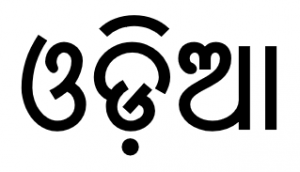Difference between revisions of "Language/Odia/Grammar/Subject-Verb-Object"
m (Quick edit) |
m (Quick edit) |
||
| Line 1: | Line 1: | ||
<span pgnav> | |||
{| class="wikitable pg_template_nav" | |||
|[[Language/Odia/Vocabulary/Polite-Phrases|◀️ Polite Phrases — Previous Lesson]] | |||
|[[Language/Odia/Grammar/Negation|Next Lesson — Negation ▶️]] | |||
|} | |||
</span> | |||
{{Odia-Page-Top}} | {{Odia-Page-Top}} | ||
| Line 194: | Line 201: | ||
{{Odia-Page-Bottom}} | {{Odia-Page-Bottom}} | ||
<span pgnav> | |||
{| class="wikitable pg_template_nav" | |||
|[[Language/Odia/Vocabulary/Polite-Phrases|◀️ Polite Phrases — Previous Lesson]] | |||
|[[Language/Odia/Grammar/Negation|Next Lesson — Negation ▶️]] | |||
|} | |||
</span> | |||
Revision as of 22:40, 2 April 2023
| ◀️ Polite Phrases — Previous Lesson | Next Lesson — Negation ▶️ |
Introduction
Welcome to the "Subject-Verb-Object" lesson of our "Complete 0 to A1 Odia Course." In this lesson, you will learn the basics of forming simple sentences in Odia. Specifically, we will focus on the subject-verb-object structure, which is the most common sentence structure used in Odia.
As always, we will provide cultural information and interesting facts throughout the lesson to make your learning experience as enjoyable as possible. By the end of this lesson, you will be able to form simple sentences in Odia and have an understanding of basic grammar rules.
Subject-Verb-Object Structure
The subject-verb-object (SVO) structure is the most common sentence structure used in Odia. In simple terms, it means that a sentence consists of a subject, a verb, and an object in that order. Here's an example:
- Odia: ମୋ ନାଁ କାର ଅଚ୍ଛନ୍ତି।
- Pronunciation: Mo nāṁ kāra acchanti.
- English: My mother cooks food.
In this sentence, "My mother" is the subject, "cooks" is the verb, and "food" is the object. The subject-verb-object structure is crucial to forming basic sentences in Odia, and it's important to understand how it works in order to communicate effectively in the language.
Subject
The subject of a sentence is the person, place, or thing that performs the action of the verb. In Odia, the subject usually comes at the beginning of the sentence. Let's take a look at some examples:
- Odia: ତୁମେ ବଢ଼ିଆହେଲା।
- Pronunciation: Tume baḍhiahelā.
- English: You grew up.
- Odia: ମେ କାମ କରୁଛି।
- Pronunciation: Me kāma karuchi.
- English: I'm working.
Verb
The verb is the action or state of being that the subject performs. In Odia, the verb usually comes after the subject in a sentence. Here are some examples:
- Odia: ତୁମେ ପଢୁଛନ୍ତି।
- Pronunciation: Tume paḍhuchanti.
- English: You're reading.
- Odia: ଆମି ଖୁଶିରେ ଯାଇଛି।
- Pronunciation: Ami khuśire jāichhi.
- English: I'm going happily.
Object
The object is the thing that receives the action of the verb. In Odia, the object usually comes after the verb in a sentence. Here are some examples:
- Odia: ମୋ ଦାଢି ଚଢ଼ିଛି।
- Pronunciation: Mo dāḍhi chaṛhichhi.
- English: My arms are climbing.
- Odia: ତୁମେ କାହିଁକୁ ଜାଣଥିବେ?
- Pronunciation: Tume kāhiṁku jānathibe?
- English: Will you know something?
Word Order
In Odia, the order of words in a sentence is very important. As we've discussed, the SVO structure is the most common sentence structure used in the language. However, the order can be changed for emphasis or clarification. Here are some examples:
- Odia: ତୁମେ ମୋ ବହିରେ ଯାଇଛୋ।
- Pronunciation: Tume mo bahire jāichho.
- English: You are going outside (emphasizes "outside").
- Odia: ମେ କାମ କରୁଛି ଟିକା ସମୟରେ।
- Pronunciation: Me kāma karuchi ṭika samayare.
- English: I'm working on a project (clarifies "on a project").
Negation
Negation is used to express the opposite of a positive statement. In order to make a negative sentence in Odia, add the word "ନା" (nā) before the verb. Here are some examples:
- Odia: ମେ କାମ କରି ନାହିଁ।
- Pronunciation: Me kāma kari nāhiṁ.
- English: I'm not working.
- Odia: ତୁମେ ଖୁସି ନାହିଁ।
- Pronunciation: Tume khuśi nāhiṁ.
- English: You're not happy.
Practice
Let's practice forming simple sentences in Odia using the subject-verb-object structure. Here are some prompts:
- My sister is singing.
- You are eating rice.
- The cat is sleeping.
- We're watching a movie.
- He is reading a book.
Use what you have learned so far to create sentences for each prompt. Feel free to use a dictionary or any resources you have available to help you. Here's an example of what your sentences could look like:
| Odia | Pronunciation | English |
|---|---|---|
| ମୋ ବହିଣୀ ଗାନା ଗାୟ। | Mo bahiṇī gānā gāẏa. | My sister is singing. |
| ତୁମେ ଭାତ ଖାଇବେ। | Tume bhāta khāibe. | You are eating rice. |
| ବିଡ଼ାଳ ସୁତେଇଛି। | Biṛāḷa suteichhi. | The cat is sleeping. |
| ଆମେ ଏକ ଚଳଚ୍ଚିତ୍ର ଦେଖୁଛୁ। | Āme eka chaḷacchitra dekhuḷu. | We're watching a movie. |
| ସେ ପୁସ୍ତକ ପଢୁଛନ୍ତି। | Se pustaka paḍhuchanti. | He is reading a book. |
Conclusion
Congratulations! You have learned the basics of forming simple sentences in Odia using the subject-verb-object structure. This is a crucial skill to have when learning any language, and we hope that you're feeling more confident about communicating in Odia. Remember to practice forming sentences on your own and to use the resources available to you, whether that's a dictionary or a language exchange partner. Keep up the good work, and we'll see you in the next lesson!
Videos
SUBJECT+VERB+OBJECT IN ODIA,//english grammar in odia//plus ...
subject verb and object English grammar in odia subject verb object ...
Other Lessons
- Adjectives
- Personal Pronouns
- Past Tense
- Present Tense
- Comparatives and Superlatives
- Conditional Mood
- How to Use Have
- Basic Prepositions
- Questions
- 0 to A1 Course
| ◀️ Polite Phrases — Previous Lesson | Next Lesson — Negation ▶️ |
